
Taiwan is unlikely to be much of a factor in the upcoming US presidential election. Domestic concerns will play a much bigger role in choosing the next president. However, whichever candidate the American people select will deal with several ongoing geopolitical flashpoints. China’s military is strengthening and experts fear the People’s Liberation Army (PLA) could take Taiwan by force by 2027. This article will examine how a Harris presidency would handle this potential crisis.
Why This Matters
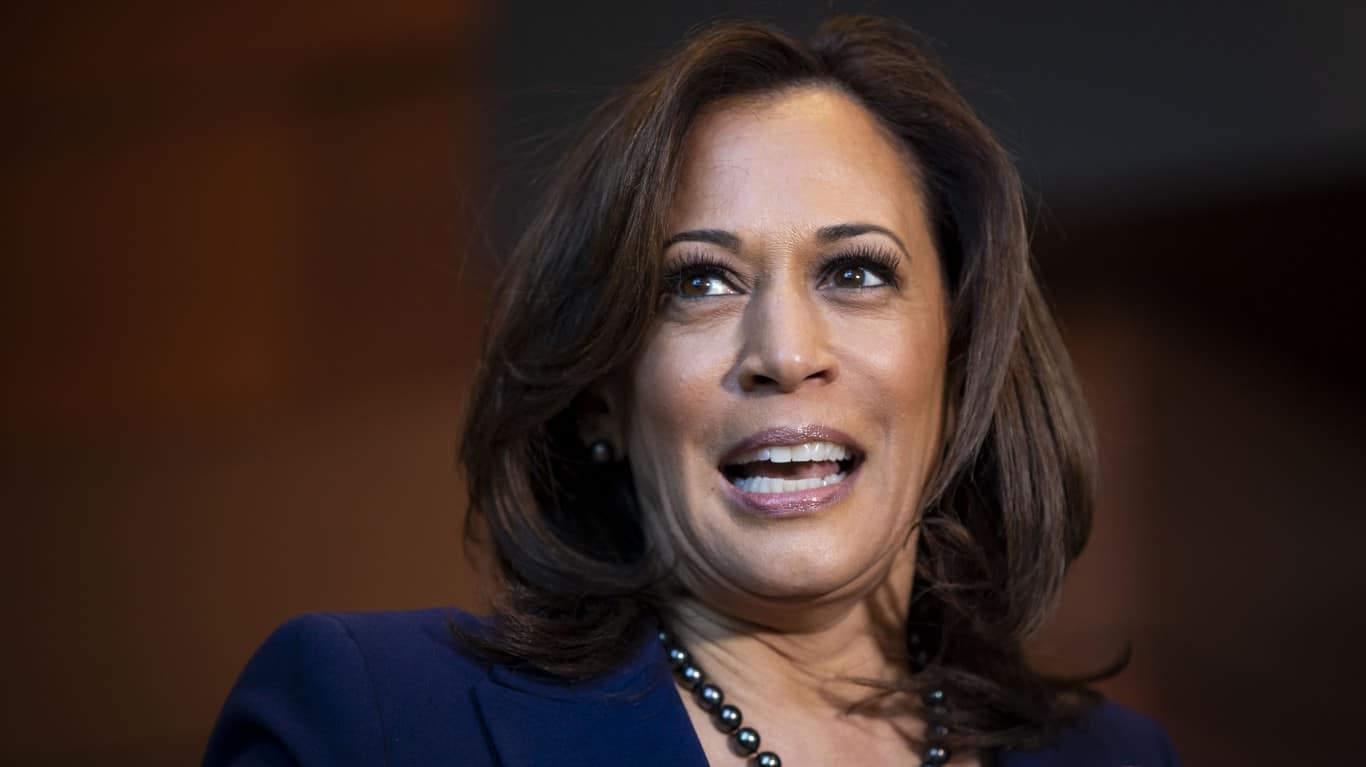
China’s position on Taiwan is quite simple: it’s a separatist province that must be reunited with the mainland. While peaceful political reunion is the preferred option, brute force is certainly on the table. The United States manages a delicate balancing act between paying lip service to Beijing’s ‘One China’ policy while protecting Taiwan’s de facto independence. Strategic ambiguity has guided American policy for decades but might have outlived its usefulness. The next President of the United States may need to definitively answer the Taiwan question.
Historical Context
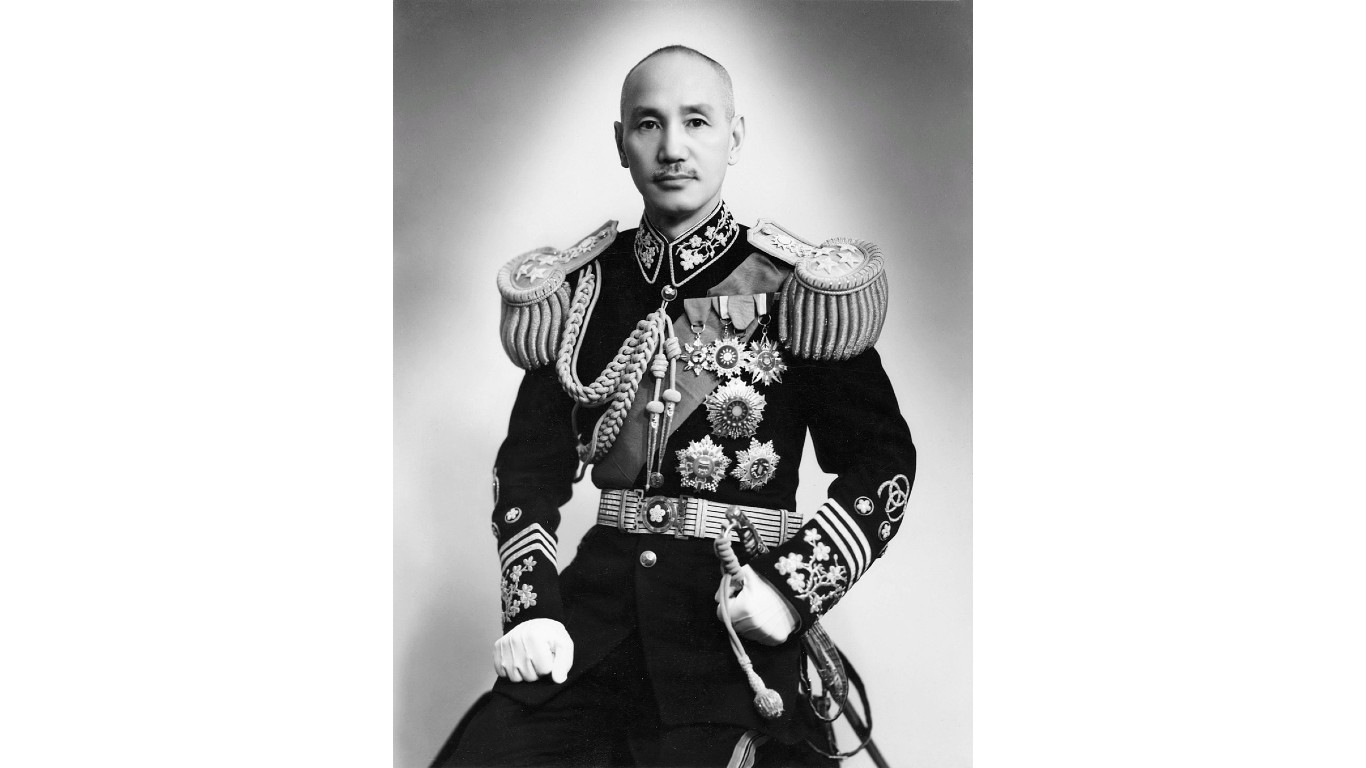
The Chinese Civil War began in the 1920s but paused for World War Two., After the Japanese were expelled, the war between the communists and nationalists resumed in 1945. Chiang Kai-shek’s nationalists lost and fled to Taiwan. Most of the world saw Chiang’s authoritarian regime, the Republic of China, as the “real China.” The United States pledged to protect the Republic of China and refused to recognize the People’s Republic of China for decades.
In 1971, the UN switched recognition from Taipei to Beijing, and relations between Beijing and Washington warmed significantly. The United States accepted Beijing’s “One China” policy in 1972 and finally recognized the People’s Republic of China in 1979. However, the US did not wholly abandon Taiwan. The Taiwan Relations Act – still the cornerstone of American policy today – passed at the same time as the shift in recognition toward Beijing. The act outlines American policy toward Taiwan’s security:
…the United States shall make available to Taiwan such defense articles and defense services in such quantity as may be necessary to enable Taiwan to maintain a sufficient self-defense capacity as determined by the President and the Congress.
It’s unclear if the United States would come to Taiwan’s aid if China invaded but there is precedent for American presidents aiding Taiwan. In 1996, the Clinton administration sent a carrier group to the Taiwan Strait as a show of force in response to weapons tests carried out by Beijing. The United States’ opaque position toward the China-Taiwan question is deliberate. Strategic ambiguity has been the American position for decades. However, the Chinese military build-up may require a more assertive position.
Harris and Taiwan
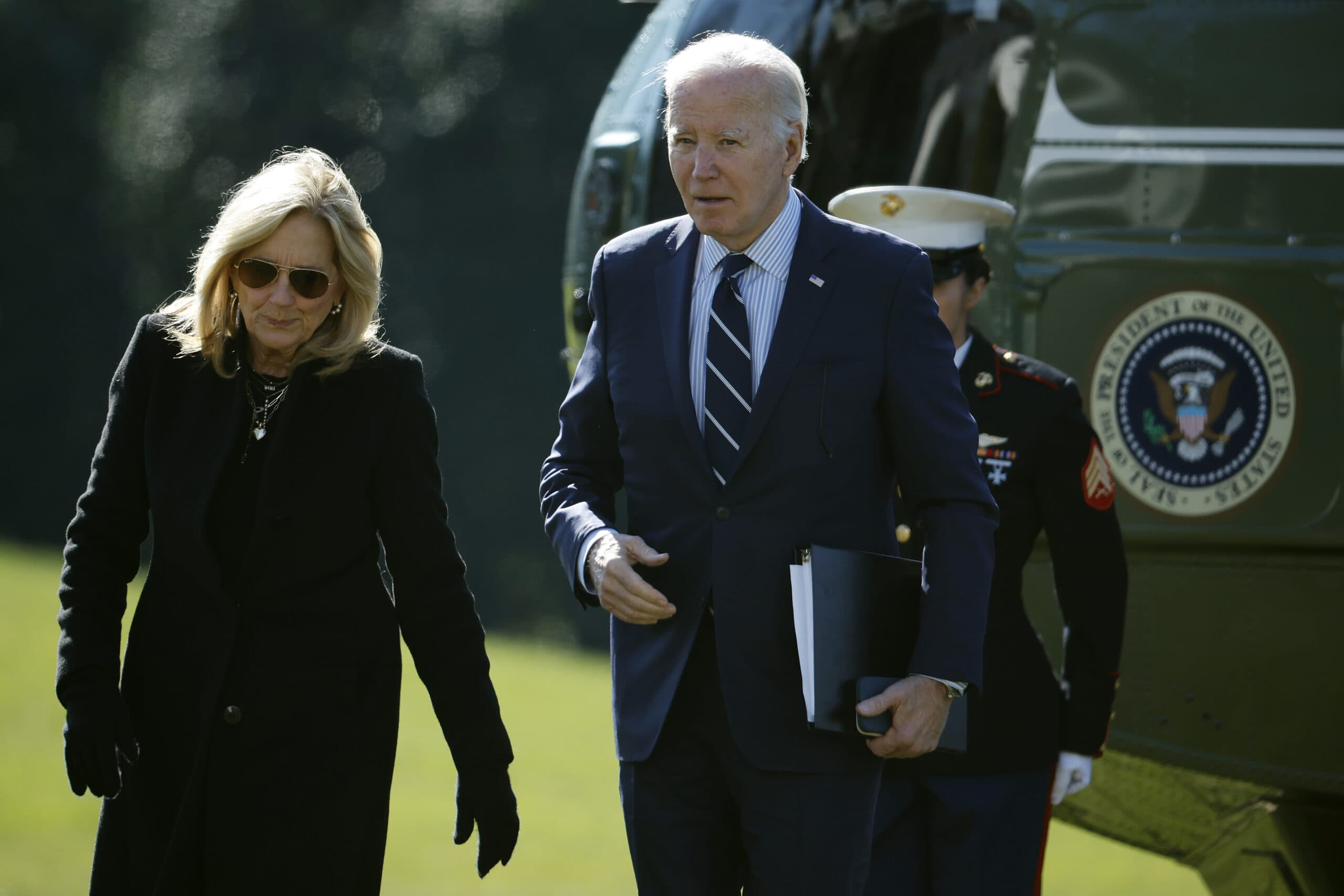
Kamala Harris drew anger from Beijing when she met her Taiwanese counterpart, Lai Ching-te in Honduras in 2022. Honduras was one of only a handful of nations with formal diplomatic ties with Taiwan. Honduras has since severed ties with Taiwan at China’s urging. The meeting between vice presidents was brief and otherwise unremarkable. Lai has since become President of Taiwan so Harris has a personal connection if she too becomes president.
Harris has shown increased interest in solidifying American ties in Southeast Asia as part of the Biden administration. Joe Biden’s policy toward Taiwan is conventional and follows decades of precedent. In interviews, he’s opposed independence for Taiwan while at the same time pledging to oppose any attempt to force a change in the status quo. In keeping with strategic ambiguity, Biden suggests the US will aid Taiwan while not offering any specifics.
A Harris victory in November would likely mean more of the same. There may be more emphasis on Southeast Asia in the future, but there shouldn’t be any major departure from strategic ambiguity.
Political Considerations
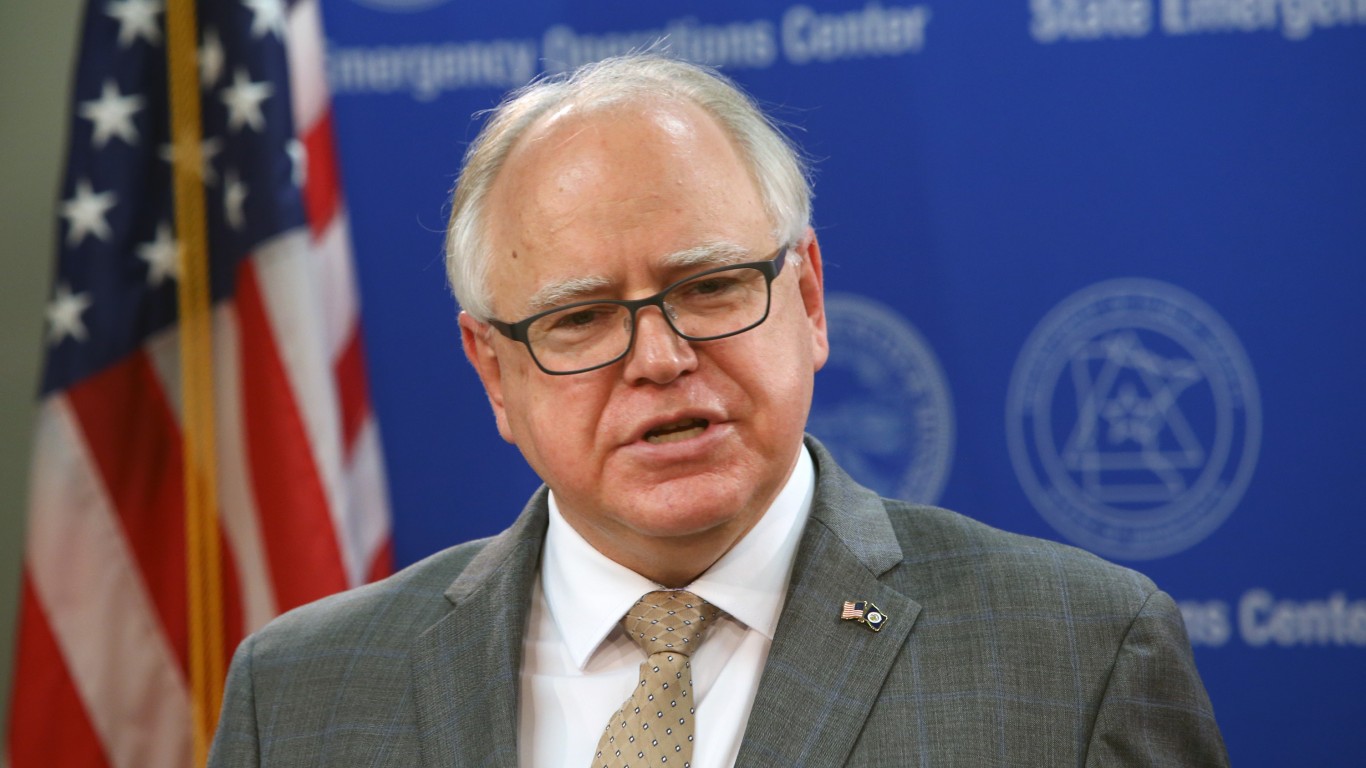
The down-ballot races are almost as important for shaping Taiwan’s future as who wins the White House. The Republicans hold a narrow majority in the House of Representatives while the Democrats have a weak grasp on the Senate. That is quite likely to reverse in November 2024. The Democrats generally overperformed in the 2022 midterms, though not in New York. The Empire State’s redistricting and better turnout could cause a couple of seats to flip. The 22nd district is now one of the most vulnerable Republican seats in the House. Additionally, Alabama’s newly created second majority-Black 2nd district will almost certainly go to the Democrats.
If the House is looking promising for the Democrats, retaining control of the Senate is a tall order. West Virginia is a certainty to flip to the Republicans after Joe Manchin retires and Arizona, Michigan, Montana, Nevada, and Ohio are all winnable from a Republican perspective. Joe Biden won the trifecta in 2020 but struggled to pass key bills. Kamala Harris faces a potentially hostile Senate that will make passing any bill difficult. At least domestically. Fortunately for Harris, supporting Taiwan is still quite a mainstream position in American politics.
Michael McCaul, a Republican, is Chairman of the House Foreign Affairs Committee. He led a bipartisan delegation to Taipei in May 2024 and reaffirmed America’s commitment to Taiwan:
Taiwan is a thriving democracy. The U.S. will continue to stand by our steadfast partner and work to maintain the status quo across the Taiwan Strait.
Similar Republican sentiments are found in the Senate, as Mitch McConnell remarked in February 2024:
We haven’t equipped the brave people of Ukraine, Israel, or Taiwan with lethal capabilities in order to win philanthropic accolades. We’re not urgently strengthening defenses in the Indo-Pacific because it feels good. We don’t wield American strength frivolously. We do it because it is in our own interest. We equip our friends to face our shared adversaries so we’re less likely to have to spend American lives to defeat them.
So while domestic priorities will be a tough proposition, there is room for maneuvering with foreign policy goals. Harris’s choice of running mate, Tim Walz, could help with the wheeling and dealing needed to get anything through Congress. In his six terms in the House, he was one of the most bipartisan representatives and dealt with a divided legislature as governor of Minnesota in his first term.
The Porcupine Strategy And Deterrence
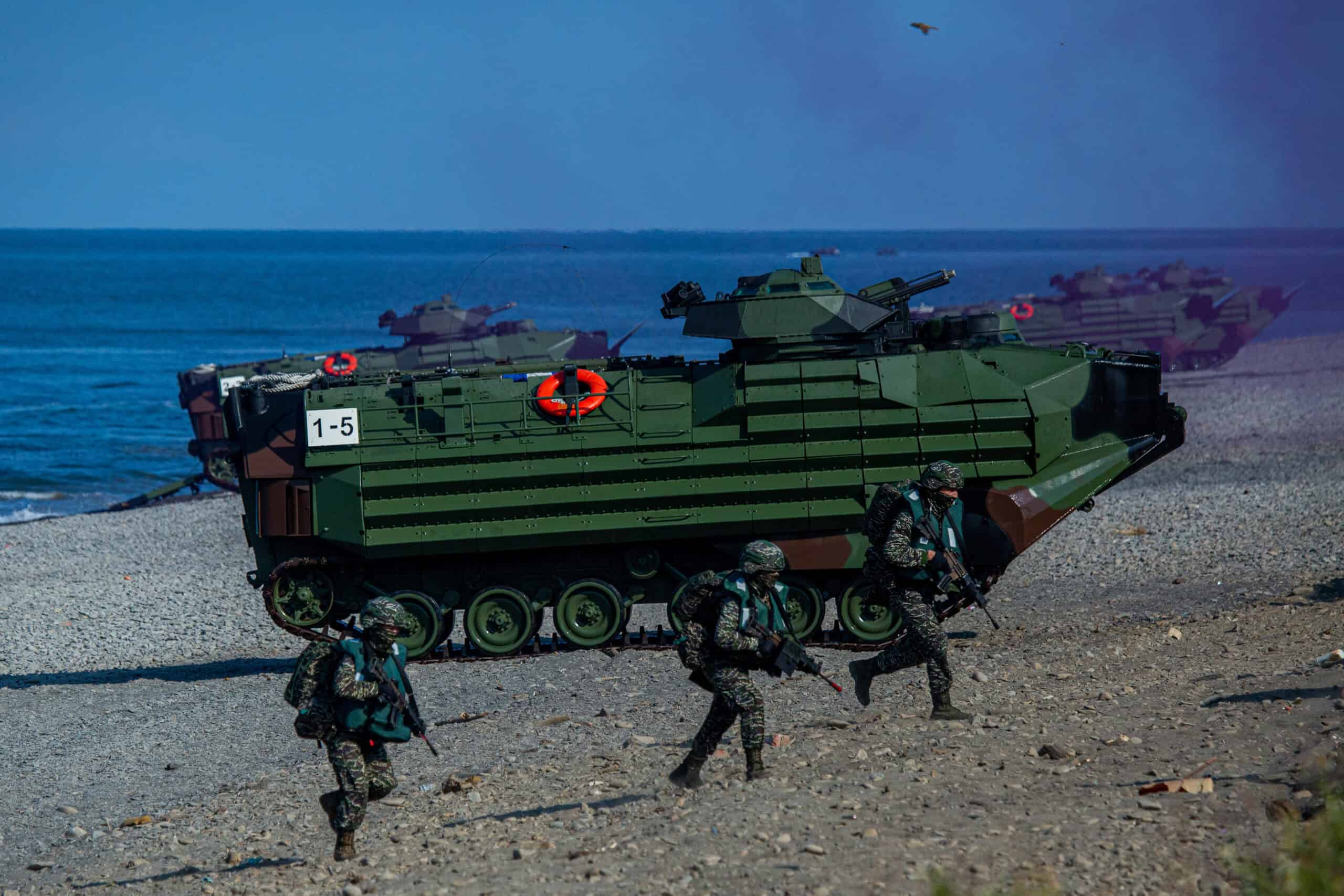
Taiwan has a modern and well-equipped military and a deep pool of trained reservists to call upon. It also enjoys some key geographic advantages as Taiwan is a natural fortress with only a handful of viable landing sites. Even with huge advantages in manpower, munitions, and equipment, taking Taiwan is still a daunting task for the PLA.
Taiwan’s defensive doctrine is sometimes called the “porcupine strategy.” As the name implies it is a defensive posture that uses many “quills”, several layers of high and low-tech weaponry, to inflict great harm on an aggressor. The key idea is to buy enough time for American aid to arrive. The outlook is to find ways to negate the firepower disparity with Beijing.
For the United States, any armed confrontation with China would be a catastrophe that could spark a global economic meltdown. China’s investment in anti-access and aerial denial (A2/AD) munitions. So-called “carrier killer” missiles could keep the US Navy at arm’s length and limit American options for intervention. Deterrence remains the most viable option
Conclusion

A Harris presidency will not lead to any significant revision to American policy in the Indo-Pacific region. As vice president, she has stayed on message for the Biden administration’s conventional approach toward Taiwan. For long as it is viable, she will continue to pursue the policy of strategic ambiguity. The limitations of that approach may become apparent when the PLA has the means to invade Taiwan. Revisions to the policy carry great risk. A formal alliance with Taiwan would have dire economic and diplomatic consequences. Equally, a more conciliatory approach to Beijing would risk emboldening Xi Jinping. A de facto independent Taiwan is vital to American interests in the Pacific as it contains Chinese expansion.
If the 2027 timeline is realized, Kamala Harris may have to find a definitive solution to a nearly 80-year-old question her predecessors avoided answering.
Get Ready To Retire (Sponsored)
Start by taking a quick retirement quiz from SmartAsset that will match you with up to 3 financial advisors that serve your area and beyond in 5 minutes, or less.
Each advisor has been vetted by SmartAsset and is held to a fiduciary standard to act in your best interests.
Here’s how it works:
1. Answer SmartAsset advisor match quiz
2. Review your pre-screened matches at your leisure. Check out the advisors’ profiles.
3. Speak with advisors at no cost to you. Have an introductory call on the phone or introduction in person and choose whom to work with in the future
Thank you for reading! Have some feedback for us?
Contact the 24/7 Wall St. editorial team.
